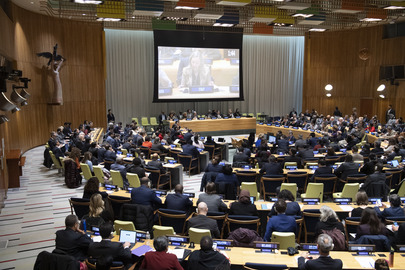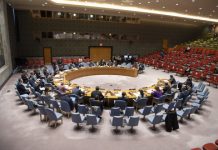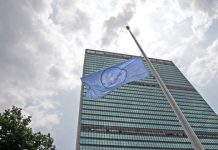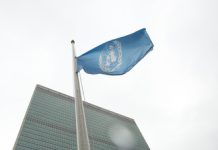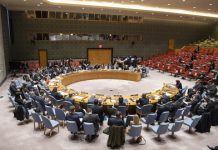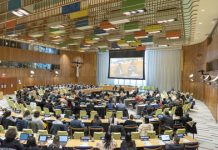Schools ‘bombed-out’ in latest Gaza escalation, says UNRWA chief
Amid intensified heavy shelling in north, central and southern Gaza, the head of the UN agency for Palestine refugees, UNRWA, confirmed on Wednesday that schools have been “bombed-out” in the latest escalation.
In an online alert, UNRWA Commissioner-General Philippe Lazzarini said that four schools have been hit in the last four days. He added that since the war began, two-thirds of UNRWA schools in Gaza have been hit; some were bombed out, many have been severely damaged.
The latest strike on Tuesday killed at least 25 people sheltering in a school in eastern Khan Younis, southern Gaza, according to the enclave’s health authorities.
Here’s Juliette Touma, UNRWA Director of Communications, speaking to UN News.
“If this war continues, we are on the verge of losing a whole generation of children…The longer children stay out of school, the more difficult it is for them to catch up on the education losses; the higher the risk that they fall prey to exploitation, including child labour, child marriage, but also recruitment into armed groups, and recruitment into the fighting.”
Ms. Touma explained that UNRWA closed all of its schools when war erupted with the 7 October Hamas-led terror attacks, and turned them into shelters.
In a statement, the Israeli military claimed that it had been targeting “terrorist infrastructure and terrorist operatives.”
WHO prequalifies first self-test for hepatitis C virus
A welcome medical development now with the announcement on Wednesday from the UN health agency that it has prequalified the first self-test for hepatitis C.
The kit, which is made by OraSure Technologies, has been specifically designed for use by people with no previous medical experience.
It comprises a single kit containing all the components needed to take the test, which the World Health Organization expects will boost much-needed access in low and middle-income countries to testing and diagnosis of hepatitis C – a virus that claims 3,500 lives every day.
Globally, 50 million people live with hepatitis C but less than four in 10 have been diagnosed, and just two in 10 have received treatment, said the UN health agency’s Dr Meg Doherty, Director of the WHO’s department of Global HIV, Hepatitis and Sexually Transmitted Infections.
Digital boom could well be a bust for the environment, warns UN trade agency
Finally, did you know that the energy required for data mining for bitcoins reached 121 terawatts last year – that’s more than the amount consumed by most small countries.
This is just one of the concerning findings of a new report into the digital economy by UN trade agency UNCTAD, which insists that the thriving sector’s negative environmental impact must be taken more seriously – and slowed by investment in renewables and global regulation.
UNCTAD Secretary-General Rebeca Grynspan noted that energy consumption has increased significantly with the rise of technologies such as artificial intelligence and cryptocurrency.
She said that Bitcoin mining’s energy consumption has 34-fold between 2015 and 2020, reaching around 121 terawatt hours, which is more than what Belgium or Finland consume per year.
Today, some 5.4 billion people use the Internet, and the global digital economy is booming, with obvious upsides for many, but Ms. Grynspan highlighted that there are plenty of downsides too, particularly for developing countries whose natural riches are exploited.
Music composed and produced by Joachim Harris. All rights reserved
Source of original article: United Nations (news.un.org). Photo credit: UN. The content of this article does not necessarily reflect the views or opinion of Global Diaspora News (www.globaldiasporanews.com).
To submit your press release: (https://www.globaldiasporanews.com/pr).
To advertise on Global Diaspora News: (www.globaldiasporanews.com/ads).
Sign up to Global Diaspora News newsletter (https://www.globaldiasporanews.com/newsletter/) to start receiving updates and opportunities directly in your email inbox for free.


